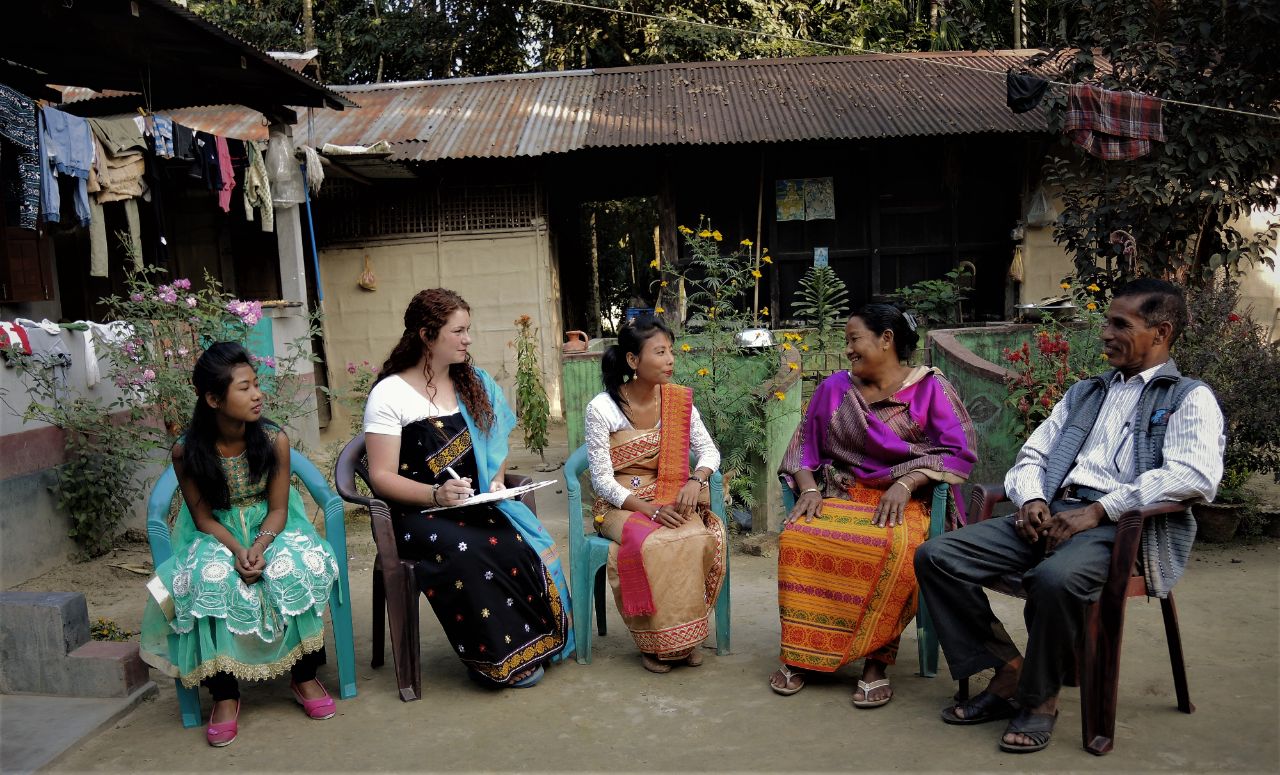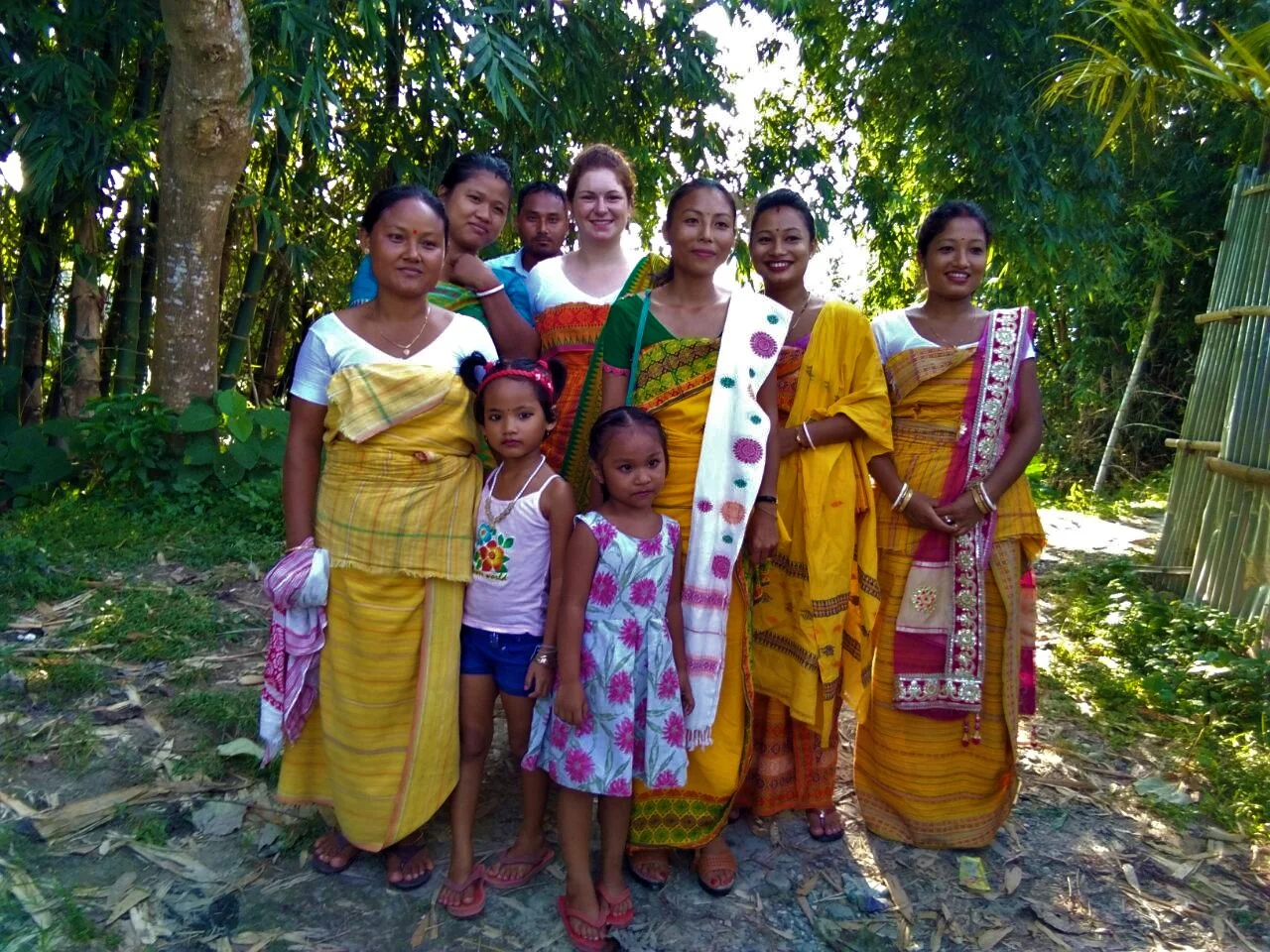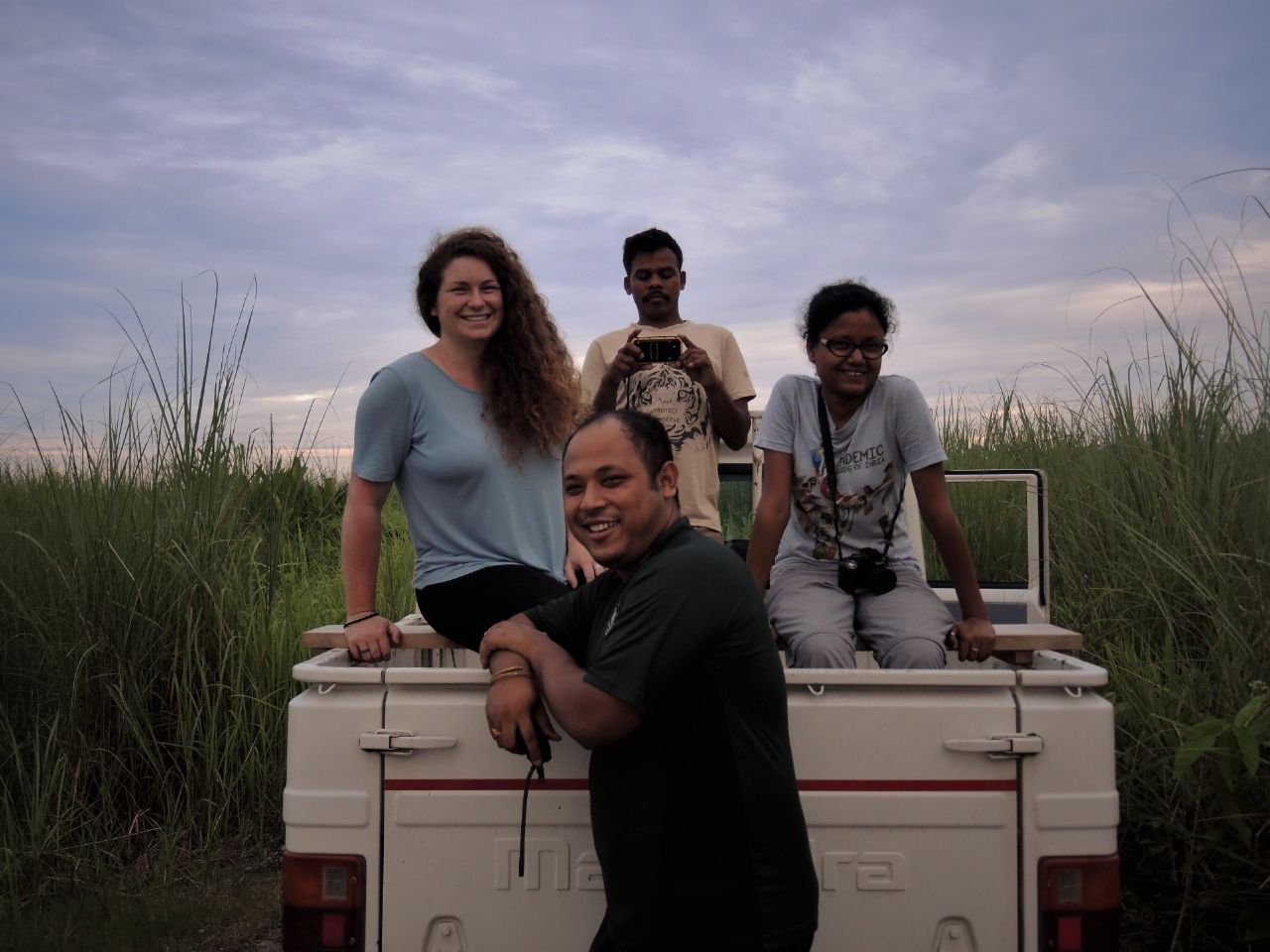
Photo courtesy Sylvia Schrötter.

Photo courtesy Sylvia Schrötter.

Photo courtesy Sylvia Schrötter.



The WINGS flag is currently in the outskirts of the Manas National Park in Assam, India, where Silvia Schrötter, a Master’s student at the Norwegian University of Life Sciences, is working to help reduce the overexploitation of the Bengal tiger.
The population of the Bengal tiger in India is dwindling due to poaching, overgrazing by cattle, and the extensive collection of thatch, food, and wood fuel for local people. Researchers believe encouraging local communities to return to their traditions of cultivating homestead gardens could be a way to provide alternative sources of income, as well as vegetables and fuel, thereby reducing the pressure on the tiger habitat.
For her Master’s thesis in Tropical Ecology and Natural Resources Management, Schrötter is collecting data about design and management strategies of homestead gardens from local populations in the fringe villages around Manas. Ultimately, that information will be used to create a pamphlet in the Bodo and Assamese languages to share information about how homestead gardens can provide fuel and income to local people.
Schrötter’s work is part of the broader Manas Tiger Conservation Programme, the aim of which is to decrease the dependency of local people on Manas by contributing to their development and by improving local law enforcement.
She said reading the reports produced by WINGS’ Flag Carriers in the past was motivating for her. “Seeing what all these women do to discover and conserve our planet motivates me in my own work and made me realize that I’m actually doing something very similar in my current research,” she said. “By being a Flag Carrier myself, I hope to encourage, motivate and inspire other girls and women to follow their passion for nature.”
Schrötter, who is from Germany, has spent the last five months in India and will return from her expedition this month.